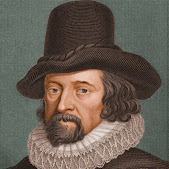Firstly I am troubled by the use of phrases such as "feminist light" and "feminist lens" - quite frankly what does this mean. I grew up in the era where "women's lib" and "feminism" were concepts and movements that touched on every area of a woman's experiences — politics, work, family, equality and sexuality. These hard won victories are currently being enjoyed by latter generations, so to bandy such phrases about today, puts me a little on edge. Don't get me wrong, I am all for looking at historical characters and events in a new light, but why does the work of a female author looking at a female character need to be labelled "feminist". And what is a "modern feminist lens" - how is it different from the views of the numerous female authors who blazed a trail beforehand.
Secondly, I really take umbrage at the following phrase: " ... offers new insight into one of England's lesser-known queens and a different interpretation of one of its least popular kings .." Quite frankly what does this actually mean - what new insight because - for me - there was no new insight, no shining light on two lesser known queens, no new interpretation on the view of John's reign. Lately the number of history books using the phrases "new information" and "new insights" that have actually delivered on this I could count on one hand (excluding my thumb).
And so, sixty-five pages down, there was nothing remotely resembling anything close to a biography or life story for either women - just a lot of "academic" twaddle, assumptions and educated guesses with the occasional mention of either or both. A lot of "concepts" being explored but not a lot substance on either woman so far. In fact, I was ready to chuck the whole thing in there and then. But I persevered through dry and boring monotone, page after page, on the role of women, queens and mothers, childhood and childbirth, fashion, trade, architecture and education, with little to endear this reader and nothing this reader had not discovered in other tomes previously written, many of which stand as the pre-eminent works not only of their own times but even now.
A couple of phrases I did pick up on - but again I have said them so often myself - is that the lives of medieval women - regardless of social status - was typically viewed through the agency of the men in their lives - their fathers and other male kin, their husbands, and finally their sons. McQuinn does acknowledge that "... the roles of women, even queens, most often fell with the private family-orientated realm, and thus outside the purview of most chroniclers .." Hence, with very little information on either woman to use and turn into a singular biography, we are left looking at both their lives in relation to their marriage to the same man -
King John of England. Darren Baker in his work "The Two Eleanors of Henry III" (read my review
here) presented something similar and managed to pull it off slightly better than McQuinn has done.
The only time we really get a sense of the presence of either woman is from about page 80 to about 120 - a mere forty pages - the bulk of which is dedicated to
Isabella of Angouleme, John's second wife - his first wife,
Isabella of Gloucester hardly features at all. And here, the same information can be found in any number of tomes already published on both John and the era in question.

And yet, again, accordingly to the blurb: "The two women were central to shaping John and his reign, each in her own way molding the king and each other over their lives." I am sorry, but I must have been reading a completely different book. Based upon the fact the McQuinn constantly tells us that there is a distinct lack of knowledge on either woman, that they themselves left no personal accounts, and that contemporary accounts show neither woman in a positive light, how can one make the sweeping statement that they were "central to shaping John and his reign". In fact, the underlying message I got from all of this was the laying of blame for John's behaviour firmly at the feet of both women, which is more in line with a misogynist viewpoint than a feminist one.
Overall, I came away from this less than impressed. I skimmed through the final chapter (on the portrayal of both in fiction) and headed straight for the sources - no surprises there for me - and some of those listed I found myself questioning the usage of but that's just my humble opinion.
For me, this was just another in a long line of tomes being churned out by this publisher that all promise the same thing - and funnily enough, deliver it - and that thing being delivered is not much at all. Would I recommend this - no I wouldn't - not for the generalist reader nor the specialist reader.
I can hear the tut-tutting already. Am I being too harsh, surely there were some redeeming features. Well, the only redeeming feature is that the author is to be applauded for taking on this task in the first place. I do know how hard it is to craft a decent tome around a subject matter where there is little or no information - but please don't provide me with something that you can't deliver on. If there is nothing on your chosen subject - acknowledge and move on! I personally would much prefer a smaller volume than pages of padding.















